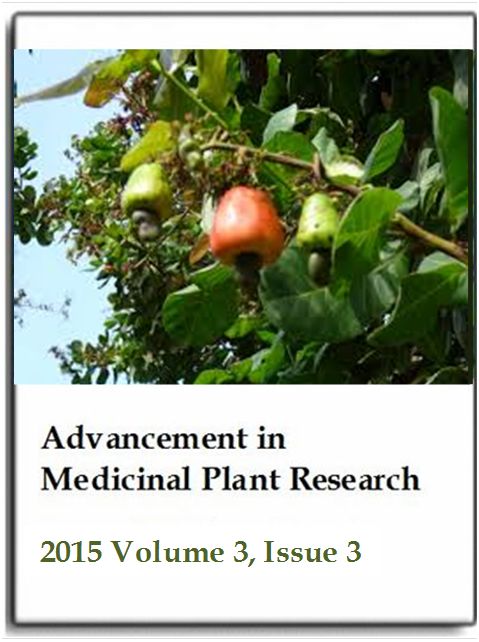Open label study to assess the safety and efficacy of IQP-PO-101 in regulating bowel movement frequency
Udo Bongartz, Ralf Uebelhack and Felix AltAdvancement in Medicinal Plant Research
Published: July 27 2015
Volume 3, Issue 3
Pages 106-112
Abstract
This study was conducted to assess the efficacy and safety of IQP-PO-101 (also known as Chiasyll™) in regulating bowel movement and relief of other constipation symptoms. Frequency of bowel movements was evaluated in 50 adults, aged between 18 and 65 years old, who were constipated and had 2 to 4 bowel movements per week. The open-label study had a 2-week run-in period, 4-week intervention period, and a 2-week post-treatment period. In addition to weekly measurement of bowel movement frequency, subjects had to self-assess and record the consistency of their stools, evaluate straining, pain, and evacuation completeness using a Visual Analogue Scale (VAS) in the subject diaries. When constipation was assessed by frequency of bowel movement, laxation was restored from a mean of 3.56 (SD 1.23) times at Week 0 to 6.14 (SD 2.34) times at Week 4 during the treatment period (p < 0.001). At Week 6 during the post-treatment period, subjects experienced bowel movements 4.78 (SD 2.01) times (p < 0.001). At the end of the treatment period, IQP-PO-101 was also shown to reduce the proportion of constipated stools (Type 1 and Type 2 on Bristol Stool Chart) by two-fold, indicating improvement of the hard and lumpy stool texture (p < 0.001). Subjects also experienced an increase in frequency of feeling of complete evacuation during bowel movements, from 33.0% at Week 0 to 64.2% at Week 4. Pain during defecation was also reduced at the end of the treatment period. The absence of a comparator arm is a relevant limit of the study. Overall, the administration of IQP-PO-101 resulted in significant improvement in subjects’ bowel regularity with minimal gastrointestinal side effects.
Keywords: Bowel movement, constipation, psyllium husk, chia seed.
Full Text PDF
